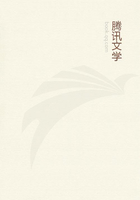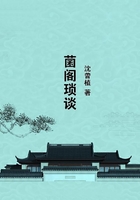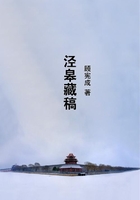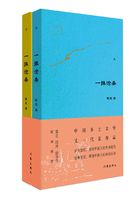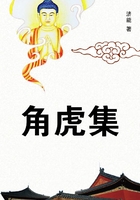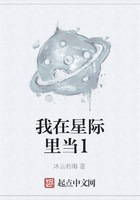On March 9, 1864, at the Executive Mansion, and in the presence of all the Cabinet Ministers, Lincoln handed Grant the Lieutenant-General's commission which made him Commander-in-Chief of all the Union armies--a commission such as no one else had held since Washington. On April 9, 1865, Grant received the surrender of Lee at Appomattox; and the four years war was ended by a thirteen months campaign.
Victor of the River War in '63, Grant moved his headquarters from Chattanooga to Nashville soon before Christmas. He then expected not only to lead the river armies against Atlanta in '64 but, at the same time, to send another army against Mobile, where it could act in conjunction with the naval forces under Farragut's command.
He consequently made a midwinter tour of inspection: southeast to Chattanooga, northeast to Knoxville and Cumberland Gap, northwest to Lexington and Louisville, thence south, straight back to Nashville. This satisfied him that his main positions were properly taken and held, and that a well-concerted drive would clear his own strategic area of all but Forrest's elusive cavalry.
It was the hardest winter known for many years. The sticky clay roads round Cumberland Gap had been churned by wheels and pitted by innumerable feet throughout the autumn rains. Now they were frozen solid and horribly encumbered by debris mixed up with thousands upon thousands of perished mules and horses. Grant regretted this terrible wastage of animals as much in a personal as in a military way; for, like nearly all great men, his sympathies were broad enough to make him compassionate toward every kind of sentient life. No Arab ever loved his horse better than Grant loved his splfndid charger Cincinnati, the worthy counterpart of Traveler, Lee's magnificent gray.
Summoned to Washington in March, Grant, after one scrutinizing look at the political world, then and there made up his steadfast mind that no commander-in-chief could ever carry out his own plans from any distant point; for, even in his fourth year of the war, civilian interference was still being practiced in defiance of naval and military facts and needs, and of some very serious dangers.
Lincoln stood wisely for civil control. But even he could not resist the perverting pressure in favor of the disastrous Red River Expedition, against which even Banks protested. Public and Government alike desired to give the French fair warning that the establishment of an imperial Mexico, especially by means of foreign intervention, was regarded as a semi-hostile act. There were two entirely different ways in which this warning could be given: one completely effective without being provocative, the other provocative without being in the very least degree effective. The only effective way was to win the war; and the best way to win the war was to strike straight at the heart of the South with all the Union forces. The most ineffective way was to withdraw Union forces from the heart of the war, send them off at a wasteful tangent, misuse them in eccentric operations just where they would give most offense to the French, and then expose them to what, at best, could only be a detrimental victory, and to what would much more likely be defeat, if not disaster.
Yet, to Grant's and Farragut's and every other soldier's and sailor's disgust, this worst way of all was chosen; and Banks's forty thousand sorely needed veterans were sent to their double defeat at Sabine Cross Roads and Pleasant Hill on the eighth and ninth of April, while Porter's invaluable fleet and the no less indispensable transports were nearly lost altogether owing to the long-foretold fall of the dangerous Red River. The one success of this whole disastrous affair was the admirable work of Colonel Joseph Bailey, who dammed the water up just in time to let the rapidly stranding vessels slide into safety through a very narrow sluice.
Even the Red River lesson was thrown away on Stanton, whose interference continued to the bitter end, except when checked by Lincoln or countered by Grant and Sherman in the field. When Grant was starting on his tour of inspection he found that Stanton had forbidden all War Department operators to let commanding generals use the official cipher except when in communication with himself. There were to be no secrets at the front between the commanding generals, even on matters of immediate life and death, unless they were first approved by Stanton at his leisure. The fact that the enemy could use unciphered messages was nothing in his autocratic eyes. Nor did it prick his conscience to change the wording in ways that bewildered his own side and served the enemy's turn.
When Grant took the cipher Stanton ordered the operator to be dismissed. Grant thereupon shouldered the responsibility, saying that Stanton would have to punish him if any one was punished.
Then Stanton gave in. Grant saw through him clearly. "Mr. Stanton never questioned his own authority to command, unless resisted.
He felt no hesitation in assuming the functions of the Executive or in acting without advising with him . . . . He was very timid, and it was impossible for him to avoid interfering with the armies covering the capital when it was sought to defend it by an offensive movement against the army defending the Confederate capital. The enemy would not have been in danger if Mr. Stanton had been in the field."Stanton was unteachable. He never learnt where control ended and disabling interference began. In the very critical month of August, '64, he interfered with Hunter to such an extent that this patriotic general had to tell Grant "he was so embarrassed with orders from Washington that he had lost all trace of the enemy." Nor was that the end of Stanton's interference with the operations in the Shenandoah Valley. Lincoln's own cipher letter to Grant on the third of August shows what both these great men had to suffer from the weak link in the chain between them.

